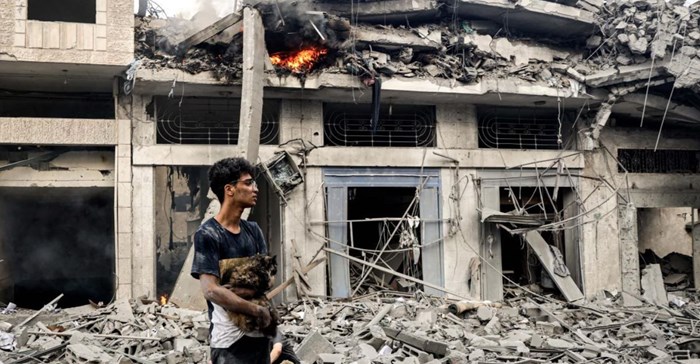
The situation in the Middle East has evolved into a severe humanitarian crisis. The ceaseless cycle of violence, destruction, and loss of life is taking a significant and continuous toll on the mental and emotional wellbeing of both Israeli and Palestinian populations, with a particularly devastating impact on the most vulnerable groups, including women, and children.
Healthcare workers who are, in essence, frontline witnesses to this trauma and suffering, are vulnerable to experience burnout and trauma with long-lasting consequences.
We are deeply disturbed by the immense trauma inflicted by the profound human suffering, loss of life, and deprivation of essential necessities such as water, electricity, sanitation, food and medicine. We find no justification for exposing civilians, especially children, to daily violence, displacement, fear and horror, while simultaneously denying them access to care and basic needs. Starvation and denial of access to medical care amount to gross human rights violations.
As numbers of the injured rise, hospitals are battling the overwhelming inability to treat patients due to a shortage of fuel, food, water, medicines, and essential facilities. Doctors are forced to operate without painkillers, anesthetics or the resources to save premature infants.
Our concerns extend not only to the physical well-being but also the mental health safety of those affected by the violence in Palestine and Israel. Ongoing research consistently demonstrates the detrimental impact of trauma, violence exposure, anxiety, and fear on mental health, often resulting in long-term, even permanent, negative psychiatric outcomes for trauma victims.
For children, continuous exposure to trauma adversely affects their developing brains and emotional capacities, diminishing their creativity and flexibility. They are enduring unimaginable trauma that will leave indelible scars on their psyches, influencing their future development, relationships, quality of life, and perpetuating intergenerational trauma within families.
Somebody's daughter, somebody's son, somebody's sister, somebody's brother
— WHO in occupied Palestinian territory (@WHOoPt) November 7, 2023
Somebody's everything
Gone.
In just one month 4104 children have been killed in Gaza.@WHO calls for an immediate ceasefire. pic.twitter.com/pLk9MUMajY
The dire circumstances under which healthcare professionals are operating are profoundly stressful, impacting their mental wellbeing and rendering them unable to fulfill their oath to provide care. They work tirelessly in an environment where resources are scarce, infrastructure is destroyed daily, and their safety is constantly at risk.
Functioning as medical professionals under these conditions is not only emotionally draining but also leads to high levels of burnout and trauma, often resulting in post-traumatic stress disorder (PTSD).
Our concerns have grown daily as the bombardment and destruction of Gaza escalates, rooted in our understanding of the profoundly negative impact of trauma. It is crucial to emphasise that our concern transcends one side or the other and encompasses all victims of unjustified, relentless brutality in the war zone.
Around one million children in Gaza lack access to enough safe water.
— UNICEF (@UNICEF) November 8, 2023
A UNICEF-supported desalination plant is operating but at very minimal capacity. Fuel is urgently needed to keep it going.
UNICEF is calling for an immediate humanitarian ceasefire, unrestricted humanitarian… pic.twitter.com/djSjUqETa1
It is vital to recognise that the experience of being subjected to punishment and trauma can significantly affect the long-term consequences of such trauma. When victims feel helpless and trapped in situations from which there is no escape, they experience a profound sense of powerlessness, which can increase the risk of adverse outcomes, including depression, anxiety, and post-traumatic stress disorder. Individuals with pre-existing mental illnesses may also face an increased risk of relapses and a worsening of their symptoms.
As psychiatrists, we must communicate with a language of care, compassion, and kindness. It is, therefore, our duty to speak out in the face of these widespread human rights violations. We must advocate for vulnerable, traumatised populations who have very limited voices of their own. This advocacy should not be constrained by considerations of religion, culture, or ethnicity.
Our stance must demand respect for fundamental human rights and should not waver because it conflicts with any political agenda. This is what advocacy in the interests of humanity demands.